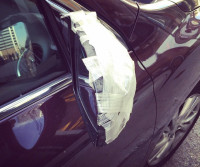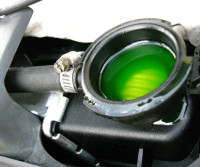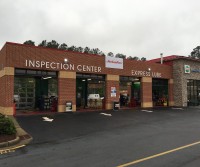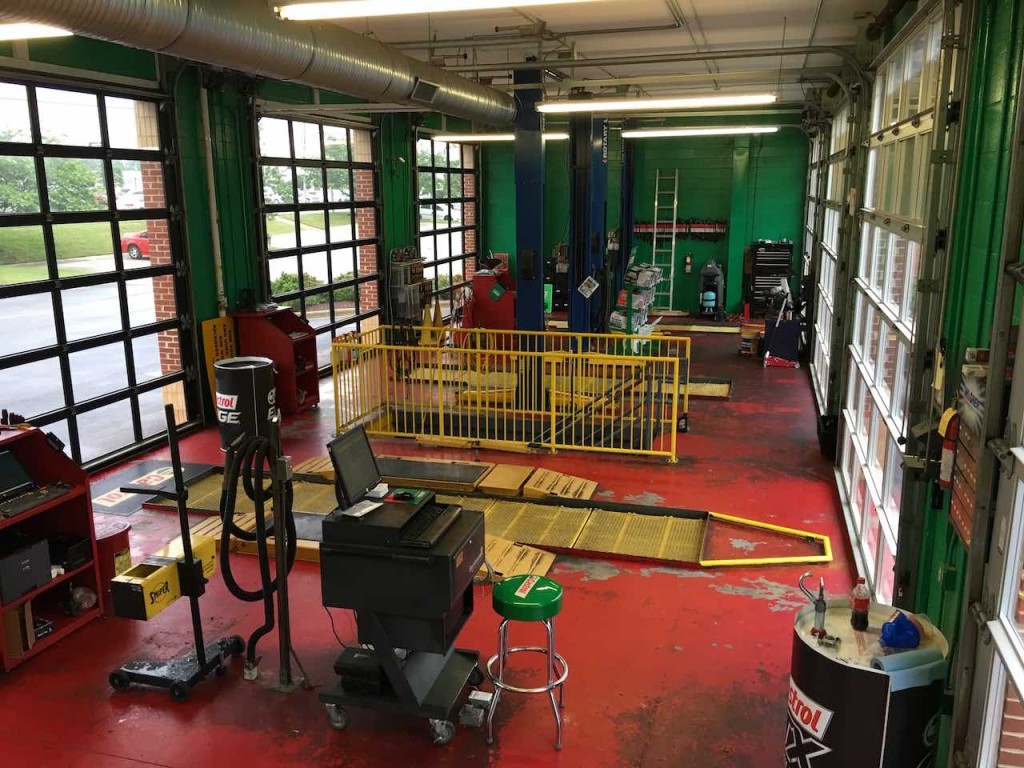
Down the road when that new car smell fades away and it doesn’t quite drive like it used to, you’ll want to know the extent of your auto warranty coverage. Knowing what parts, tune-ups and repairs will be covered — and for how long — will give you a complete picture of how to minimize your costs and what kind of insurance you’ll need in the long run. Here’s what you need to know to save you money and get the best service for your car when you need it.
Auto warranty 101
An auto warranty is a promise made by a manufacturer or dealer to cover repairs and defects over the course of a certain amount of time and certain amount of mileage. Most basic warranties are guaranteed for at least three years or 36,000 miles, but may vary according to the manufacturer.
Warranties are essential a legally binding pledge to fix or replace any parts that have broken down or are inherently faulty, including defective parts. Warranties do not cover regular maintenance and will not cover breakdowns caused by accidents, acts of nature, lack of proper maintenance, contamination of fluids or fuels, collision, fire, theft, negligence or abuse.
There’s a basic checklist of questions all consumers should have answered before purchasing a car warranty, according to the Federal Trade Commission, including length of the warranty, the point of contact for service, what parts and repair problems are covered, as well as any conditions or limitations on the warranty.
What’s covered?
Different levels of warranty coverage exist, so it’s important to understand the limits and umbrella of coverage before purchasing. These are the most typical types of warranty your car dealer will offer:
Basic “bumper-to-bumper” warranty: This is the most general coverage that pays to repair defects in factory-installed parts.
Drivetrain/Powertrain warranty: Covers the engine, transmission and transaxle parts. This warranty tends to last longer than bumper-to-bumper.
Roadside assistance: Covers towing costs and tire changing if the car breaks down during travel.
Rust or corrosion warranty: Covers rust in sheet metal parts of the car.
Federal emission warranty: Covers repairs needed to correct defects in parts that would cause the car not to meet Environmental Protection Agency standards.
How drivers can maintain their warranty
Regular car maintenance and inspections are necessary to guarantee that a warranty won’t be voided. Typically, routine maintenance includes oil changes, tire rotations, fluid checks and flushes, brake pads, belt replacement, etc. A warranty will remain valid no matter who performs the repairs, meaning you can use your own mechanic or shop — not just the dealer’s service department.
What does auto insurance do that car warranties don’t?
Under car warranties, the manufacturer makes a guarantee to the car buyer regarding the condition of its product. In case car parts do not function as intended, a warranty will cover the costs to repair or replace the part, as well as car rentals due to repairs, and potentially corrosion/rust.
Insurance, on the other hand, is an obligation on the part of the insurer to take on financial protection or reimbursement for the risks that are inherent with driving. Every state in the U.S. except for New Hampshire requires drivers to purchase some level of auto insurance to cover accidents, collisions, car rentals and possibly roadside assistance.
Service contracts or “extended warranties”
When a warranty runs out, car owners may choose to purchase a service contract to provide repairs or maintenance. Vehicle manufacturers, auto dealers and independent providers sell the contract separately from a warranty.
Service contracts will not provide benefits until after the initial warranty expires. Rates for these contracts depend on the life of the car — those with fewer miles and past repairs will get a better deal.
These contracts, while often referred to as “extended warranties,” are not actually warranties. Drivers who are interested in purchasing a service contract should practice due diligence to find the most trustworthy source, particularly from third-party companies.
However, since service contracts are optional and car warranties end, it’s most critical for car owners to purchase insurance that will be the most affordable, provide adequate coverage and be the best fit for their specific car.
Best and worst warranties on the market
There are three vehicle brands that standout for providing the best in basic and power train warranties: Hyundai, Mitsubishi and Kia. Each brand offers five years or 60,000 miles new vehicle limited warranties, and 10 years or 100,000 miles powertrain warranties.
Brands like BMW and Cadillac offer four years or 50,000 miles basic warranties and five years or 100,000 miles powertrain warranties. Other big brands such as Chrysler, Chevrolet and GMC all offer three years or 36,000 miles new vehicle limited warranty, and five years or 100,000 miles powertrain limited warranty
The most standard warranties on the market are offered by Honda, Nissan, Toyota, Ford, Mazda and Subaru with three years or 36,000 miles new vehicle limited warranty, and 5 years or 60,000 miles powertrain limited warranty.

Perhaps you may have thought of resorting to do-it-yourself (DIY) techniques to repair your car, possibly as a way of saving costs incurred for every visit to the repair shop and as a personal challenge to improve your skills in car repair. While DIY techniques may prove to be both useful and enriching, they’re not always applicable to all aspects of car repair. Unless you’re a car technician yourself, you may not have all the time in the world to study all the ins and outs of car repair, which is why some complicated repair matters may not be covered by your DIY skills. To avoid the risk of aggravating your car’s condition, here are some car repair problems that shouldn’t be addressed with DIY techniques.
1: Replacing your worn-out timing belt
Once your car racks up more than 50,000 miles, you may want to have your timing belt checked. Being one of the more crucial wear-and-tear replacements, your engine’s timing belt has to be replaced once it breaks down because your car wouldn’t run properly after that. One thing that has to be considered about your timing belt is that it’s almost always one of the most expensive to repair. With components ranging between $450 and $1,000, you might as well repair your car’s timing belt all by yourself. However, a DIY approach to repairing timing belts is utterly inadvisable.
Several car owners have reported subjecting their cars to more expensive repairs after attempting to fix their timing belts by themselves. With engine damage being the inevitable result of failed DIY approaches to repairing timing belts, it is highly recommended that you don’t deal with your car’s timing belt by yourself. Ask for the services of a skilled car technician for having your timing belt problem addressed – paying between $450 and $1,000 for components plus service charges is definitely more bearable than subjecting your engine to at least $3,500 worth of repairs due to damage caused by DIY approaches.
2: Addressing your automatic transmission problems
If you own an automatic-transmission car, it’s best for you to have your car checked by a car technician one it encounter problems related to its automatic transmission system. Containing several minute components, your car’s automatic transmission system can be very difficult to manage through DIY approaches. Arteries for hydraulic fluid passage and precisely-fitted parts all make up automatic transmissions they can be very complicated to address on your own and it can subject you to very costly consequences once you make a mistake. Therefore, a car technician would best solve your car’s automatic transmission issues, given that they specialize in dealing with its ins and outs.
Your car’s automatic transmission system would most likely lead you to more repair costs if you deal with it improperly using DIY approaches. More often than not, maintaining your car’s automatic transmission system on your own may inadvertently lead to more damage owing to its sheer sensitivity. Thus, even seeming-simple maintenance procedures such as fluid change and flushing should be left to the care of specialized car technicians – their expert services ensures you of less costs and greater success, relieving you from the possibility of exposing yourself to greater costs by going DIY.
3: Dealing with overheating
Overheating is every car owner’s bane, not least because it emerges as a symptom of their car’s overuse. Dealing with the root cause of overheating through DIY approaches is a big no-no unless you’ve received ample training for dealing with cooling systems. Be that as it may, the fact that cooling systems repair is among the most advanced repair issues in cars leaves you with the services of a skilled car technician as the most cost-effective choice for resolving overheating. Otherwise, your DIY attempts to fix your car’s overheating problem would only lead you to suffer massive financial consequences.
4: Dabbling with the cause of your car’s faulty drivability
At some point, your car will definitely start exhibiting problems relating to drivability – failure to start properly, stalling and surging, and notifications telling you to check your engine are just some of the examples involved. Needless to say, those are the kinds of problems that can’t simply be solved by DIY techniques – they require a specialized form of training even skilled car technicians have struggled to perfect. With that, drivability problems shouldn’t be part of your DIY coverage – they are best left to the care of repair shops where car technicians have ample experience dealing with those issues.
Another thing most DIY connoisseurs have failed to understand is the fact that drivability problems require several pages of diagnostics to understand and resolve. Those diagnostics typically require further tests as well, given that codes pertaining to damage in drivability tend to involve other components as well. It is in that regard where DIY approaches have failed to address faulty drivability – just because the diagnostics mention specific codes doesn’t exactly mean that the problem is exclusive to the components mentioned. For that, your car’s drivability problems must undergo a series of repair sessions conducted by car technicians – that’s way more convenient and practical than solving the problem on your own and causing further damage in the process.
5: Solving your suspension woes
Your car’s suspension system may look very easy to deal with from the onset, but the reality is that it’s very difficult to deal with its complexities without proper training. That alone should serve as a warning against employing DIY techniques on solving suspension problems. There have been many instances already where DIY attempts to fix suspension have failed miserably, starting with the failure to deal with the massive force involved in putting a compressed coil spring in place. Replacing struts, arms, and bushings also require the specialized skills of car technicians, given the sophisticated order of their arrangement within your car’s suspension system. Considering as well that service charges aren’t too high as to merit amateur DIY approaches, having your car’s suspension system fixed by car technicians is undoubtedly a more cost-effective idea.
Any of our Fast Lube Plus Locations are more than happy to take the reigns to handle these issues. Give us a call to schedule now!

Besides your brake pads, fluids are the majority of the most important maintenance to your vehicle to keep on the road for several hundred thousand miles. Friction and heat are enormous by-products of the power your vehicle creates to shuttle us around, and without these fluids your vehicle will simply not work. Keeping these fluids fresh and full can make the difference between simple maintenance and costly repairs.
Which fluids should you check? Here are five of your engine’s fluids you should make a habit of checking:
ENGINE OIL
- Check your oil once a month.
- Check out your owner’s manual to know when to have the oil replaced. Timeframes depend on the car.
- Typical numbers are every 3,000 miles for newer engines up to 7,000 miles for high mileage. Higher mileage engines can go longer due to the parts being “worn in”, causing less friction meaning less lubrication is necessary.
TRANSMISSION FLUID
- Transmission fluid should be checked monthly.
- It should be replaced every 50,000 to 100,000 miles.
- This is a job for FastLube Plus or another professional, as many times gaskets must be replaced as well.
COOLANT
- Coolant should be checked twice yearly, before summer and before winter.
- It needs to be replaced every 2 to 3 years.
- Low coolant can lead to blown radiators when air (which can expand) enters the cooling system.
BRAKE FLUID
- You should check this once a month.
- Brake fluid needs to be replaced every 2 years.
POWER STEERING FLUID
- This fluid should be checked once a month.
- Check your owner’s manual for information of replacing power steering fluid. It greatly depends on the car.
The team at FastLube Plus is always happy to answer any of your questions. We can also check your engine’s fluids and replace any necessary fluids. A well-maintained car is synonymous with safe car. To schedule an appointment please call us at919.387.9996 to find your nearest FastLube Plus location.

Fast Lube Plus is proud to have served Wake and Johnston counties for 15+ years. As the area has grown, so have we. And our next step has taken us further south into Wake County, into the town of Fuquay-Varina. Our newest store there is now open for business!
A bout the Location
bout the Location
Our Fuquay-Varina store joins our existing locations in Apex, Cary, Morrisville, Holly Springs, and Garner. The shop sits in the heart of town at 1110 North Main Street, across from Walmart. Its proximity to both historic neighborhoods and new developments mean that we can serve as many residents of the city as possible. Main Street’s connection to US 401 also means that commuters can easily stop by on their way home from downtown or the RTP.
About Us
Fast Lube Plus is a regionally-based, family-owned comprehensive automotive maintenance provider. Operated by a father and son team, our owners Tom and Joe work alongside technicians in each of our locations. Our regular customers know us by name, and soon you will too.
Fast Lube Plus’ services run the gamut from routine oil changes and maintenance to diagnostics, belt repairs, tune-ups, and brakes. We are also a fully certified North Carolina Emissions Inspection station. We treat even routine maintenance with the same care and respect of the most complex job.
About Fuquay-Varina
Fuquay-Varina and Southern Wake County are in a unique position. These historically rural communities have bared the brunt of Raleigh’s explosive growth, with Fuquay-Varina doubling in population just since 2000. Much of this is due to the area’s tech industry, particularly in the Research Triangle Park.
With our experience in Raleigh’s other booming suburbs, we know the unique needs of a community on the rise. We understand how to respect old residents while adapting to the needs of transplants. And while we find our daily operations serve a valuable purpose – keeping people on the move – we also respect our place in our communities. Fast Lube Plus gives back through work with the Holly Springs Food Bank, the US Veteran Corps of Cary, and other local charities.
With this new expansion in Fuquay-Varina, we hope to keep a new community on the move!
